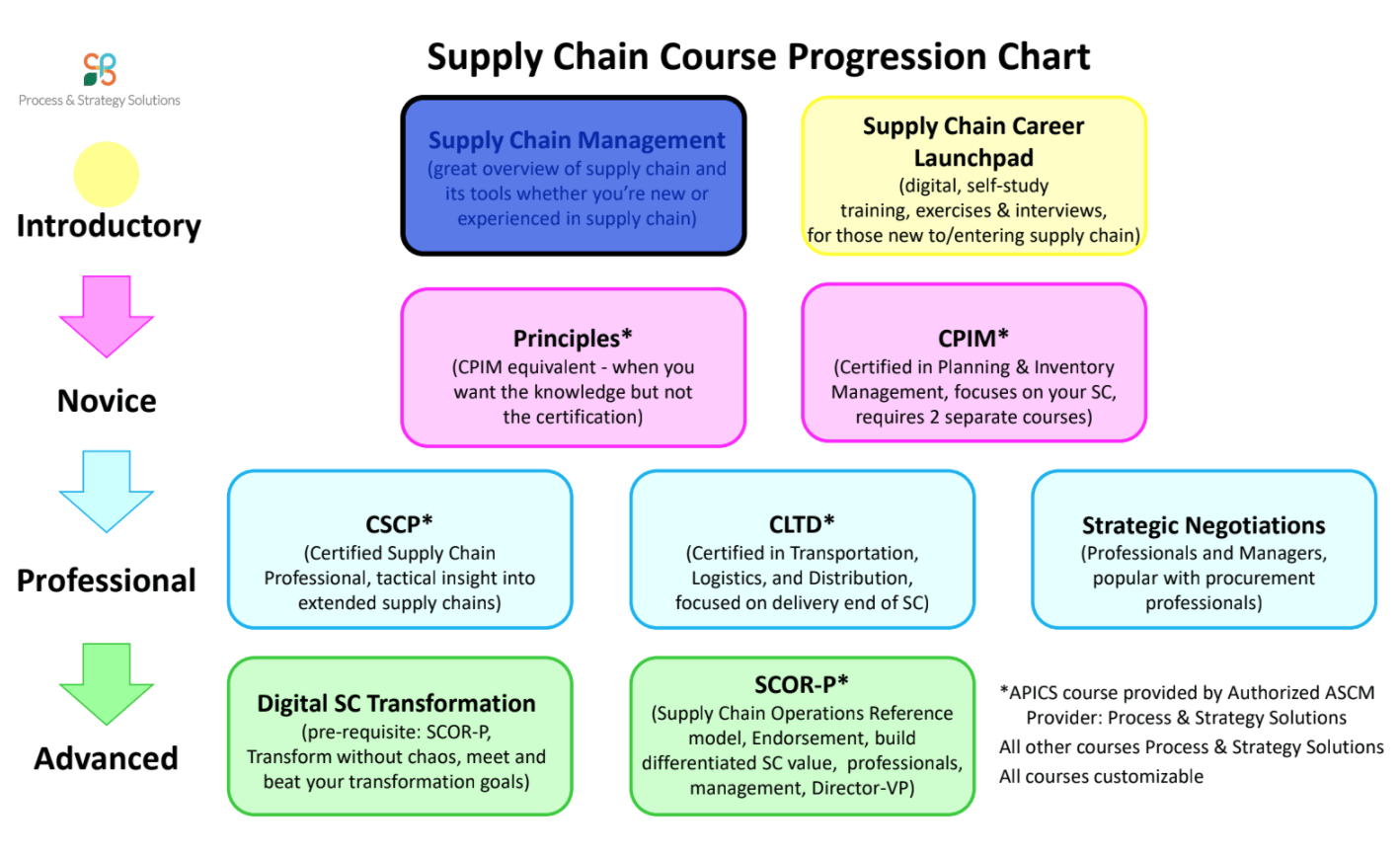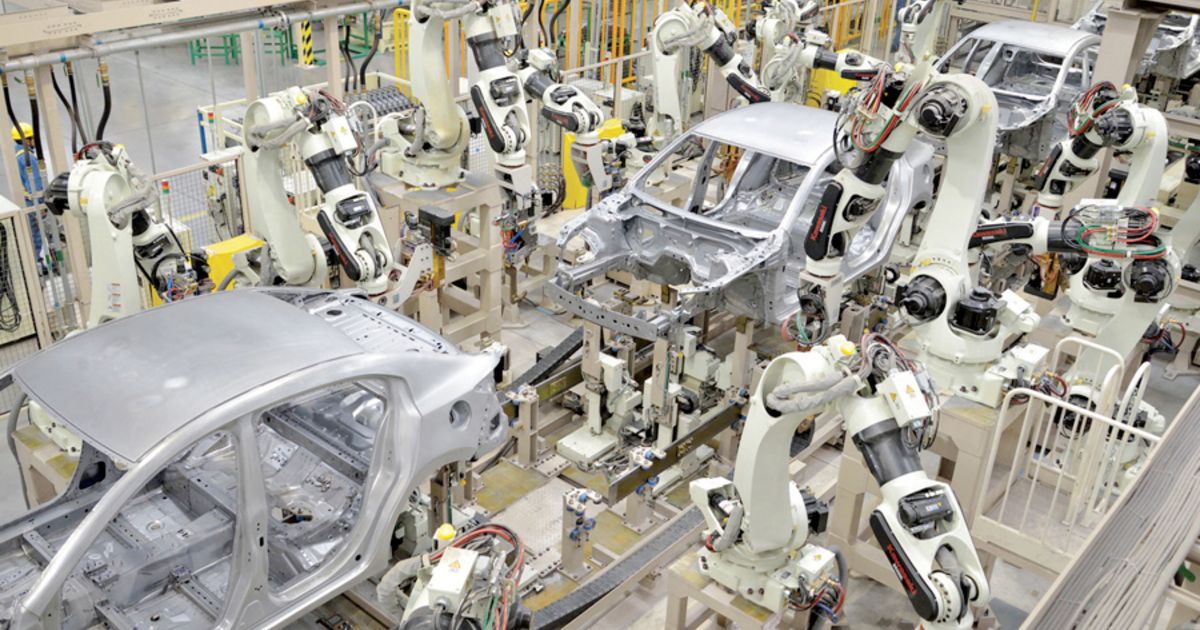
Supply chain management is one the twenty hottest career paths for the 21stcentury. Demand for workers in this field is expected to rise by 13% between now and 2028.
The digitalization of the industry has made it more important than ever to have specialized skills for this rapidly evolving career path, and Masters in Supply Chain Management are becoming a popular choice for graduates looking to take their career to the next level. These programs can be done part-time by working professionals. This keeps the cost of education low.
A master's program in supply-chain management can help you prepare for a leadership position at a large organization, especially if your goal is to become a supply-chain manager. This field has a global focus, which is why many companies want to hire more supply-chain managers to help them expand across the globe.
There are a wide range of schools that offer degrees in supply chain management. Some schools require applicants to have a business degree, while others will accept non-business majors. Admission requirements may vary but many require at least two-years of work experience. Others require GMAT and GRE scores.

University of Alabama provides an accredited online degree in supply chain management that is designed to meet the needs of working professionals. Online courses taught by subject experts. The program is affordable and fully accredited by the Accredited Council for Business Schools and Programs.
Kettering University has a low-cost online master's of supply chain management. This 30-credit program is AACSB-accredited and U.S. News and World Report has recognized it as a nationally recognized program.
The program allows students to choose between three interdisciplinary specializations. The program includes an internship, which allows students to apply their knowledge in real-world scenarios.
MIT SCM is the #1 Supply Chain Management graduate program in the world.
In recent years, a number of top business schools have jumped in the supply chain arena, including Harvard which is ranked the top MBA program by US News, and MIT which is ranked the top Supply Chain Management Program on the QS World Rankings.
MIT SCM leads the way in research and education on supply chain management. It has a rich tradition of innovation. Its Supply Chain Management Center (SCM) is a technology based research and educational center that focuses primarily on 21st-century logistics best practices.

Jindal School professors are tackling challenging supply chain issues with a blend of research and hands-on experience. Professor Ozalp Ozer of the JSOM, for instance, has created a way to encourage voluntary reporting of environmentally hazardous incidents, and make it easier for law enforcement agencies, as well as businesses.
The University of Alabama as well as Kettering University are two other schools that offer graduate degrees in supply chain management. Some of these programs require that you have a Bachelor's Degree in Supply Chain Management or a similar discipline. Others are open to applicants who have an undergraduate education and have at least 5 years of experience.
FAQ
What is meant by manufacturing industries?
Manufacturing Industries are those businesses that make products for sale. These products are sold to consumers. These companies use a variety processes such as distribution, retailing and management to accomplish their purpose. They manufacture goods from raw materials using machines and other equipment. This includes all types of manufactured goods, including food items, clothing, building supplies, furniture, toys, electronics, tools, machinery, vehicles, pharmaceuticals, medical devices, chemicals, and many others.
How can manufacturing efficiency improved?
First, we need to identify which factors are most critical in affecting production times. We then need to figure out how to improve these variables. If you don’t know how to start, look at which factors have the greatest impact upon production time. Once you've identified them, try to find solutions for each of those factors.
What is the job of a manufacturer manager?
A manufacturing manager must make sure that all manufacturing processes run smoothly and effectively. They should be alert for any potential problems in the company and react accordingly.
They should also be able communicate with other departments, such as sales or marketing.
They should be informed about industry trends and be able make use of this information to improve their productivity and efficiency.
Is automation important for manufacturing?
Automation is essential for both manufacturers and service providers. Automation allows them to deliver services quicker and more efficiently. It helps them to lower costs by reducing human errors, and improving productivity.
Statistics
- Many factories witnessed a 30% increase in output due to the shift to electric motors. (en.wikipedia.org)
- It's estimated that 10.8% of the U.S. GDP in 2020 was contributed to manufacturing. (investopedia.com)
- Job #1 is delivering the ordered product according to specifications: color, size, brand, and quantity. (netsuite.com)
- According to a Statista study, U.S. businesses spent $1.63 trillion on logistics in 2019, moving goods from origin to end user through various supply chain network segments. (netsuite.com)
- According to the United Nations Industrial Development Organization (UNIDO), China is the top manufacturer worldwide by 2019 output, producing 28.7% of the total global manufacturing output, followed by the United States, Japan, Germany, and India.[52][53] (en.wikipedia.org)
External Links
How To
How to Use Lean Manufacturing in the Production of Goods
Lean manufacturing (or lean manufacturing) is a style of management that aims to increase efficiency, reduce waste and improve performance through continuous improvement. It was developed in Japan during the 1970s and 1980s by Taiichi Ohno, who received the Toyota Production System (TPS) award from TPS founder Kanji Toyoda. Michael L. Watkins published the original book on lean manufacturing, "The Machine That Changed the World," in 1990.
Lean manufacturing, often described as a set and practice of principles, is aimed at improving the quality, speed, cost, and efficiency of products, services, and other activities. It emphasizes reducing defects and eliminating waste throughout the value chain. Lean manufacturing is called just-in-time (JIT), zero defect, total productive maintenance (TPM), or 5S. Lean manufacturing focuses on eliminating non-value-added activities such as rework, inspection, and waiting.
Lean manufacturing improves product quality and costs. It also helps companies reach their goals quicker and decreases employee turnover. Lean manufacturing is considered one of the most effective ways to manage the entire value chain, including suppliers, customers, distributors, retailers, and employees. Many industries worldwide use lean manufacturing. Toyota's philosophy is a great example of this. It has helped to create success in automobiles as well electronics, appliances and healthcare.
Five fundamental principles underlie lean manufacturing.
-
Define value - Find out what your business contributes to society, and what makes it different from other competitors.
-
Reduce Waste - Eliminate any activity that doesn't add value along the supply chain.
-
Create Flow: Ensure that the work process flows without interruptions.
-
Standardize & Simplify - Make processes as consistent and repeatable as possible.
-
Building Relationships – Establish personal relationships with both external and internal stakeholders.
Lean manufacturing, although not new, has seen renewed interest in the economic sector since 2008. Many businesses are now using lean manufacturing to improve their competitiveness. According to some economists, lean manufacturing could be a significant factor in the economic recovery.
With many benefits, lean manufacturing is becoming more common in the automotive industry. These include higher customer satisfaction levels, reduced inventory levels as well as lower operating costs.
You can apply Lean Manufacturing to virtually any aspect of your organization. This is because it ensures efficiency and effectiveness in all stages of the value chain.
There are three types principally of lean manufacturing:
-
Just-in Time Manufacturing, (JIT): This kind of lean manufacturing is also commonly known as "pull-systems." JIT is a process in which components can be assembled at the point they are needed, instead of being made ahead of time. This approach reduces lead time, increases availability and reduces inventory.
-
Zero Defects Manufacturing: ZDM ensures that no defective units leave the manufacturing plant. If a part is required to be repaired on the assembly line, it should not be scrapped. This is also true for finished products that require minor repairs before shipping.
-
Continuous Improvement (CI): CI aims to improve the efficiency of operations by continuously identifying problems and making changes in order to eliminate or minimize waste. Continuous improvement involves continuous improvement of processes and people as well as tools.